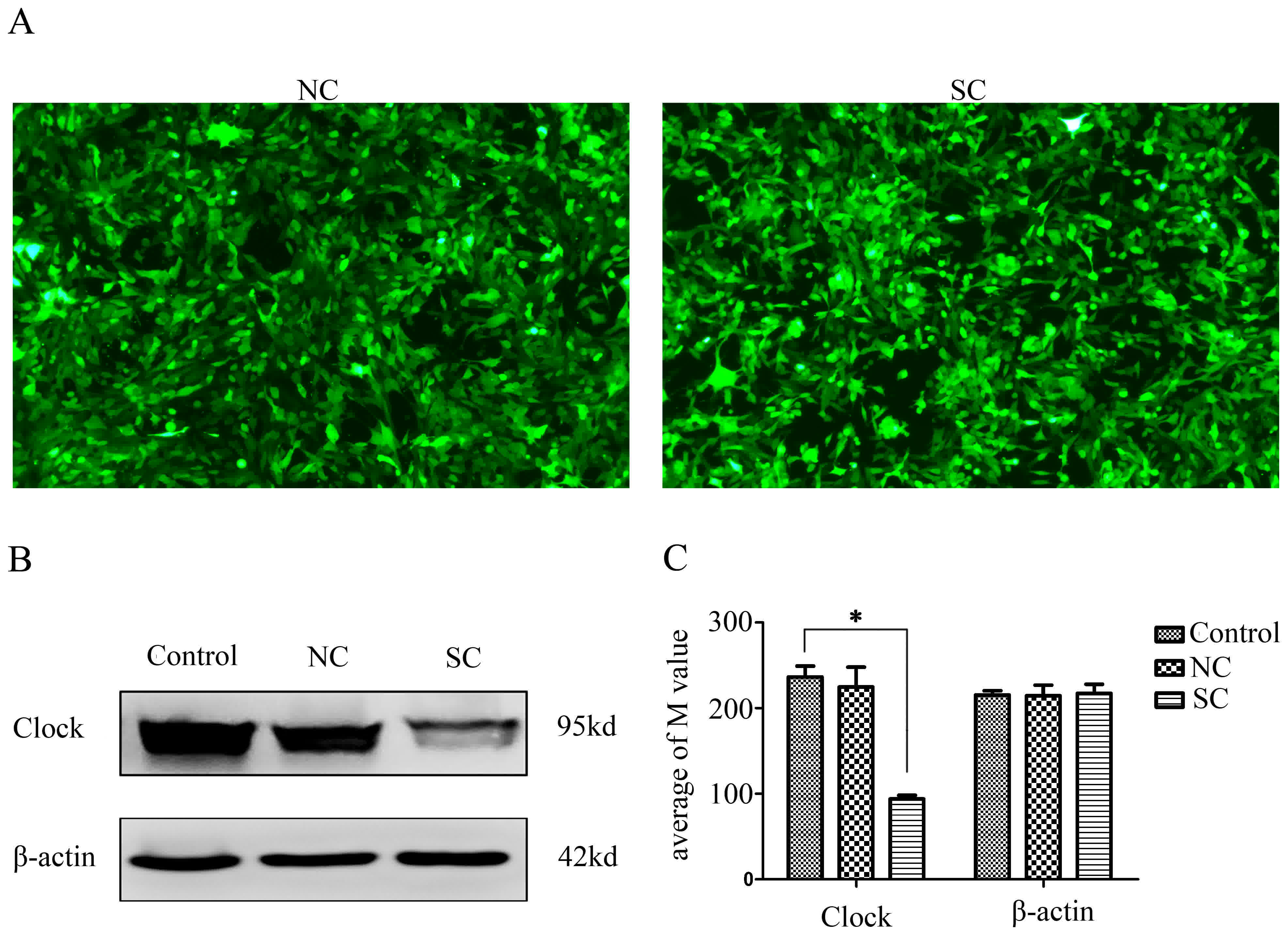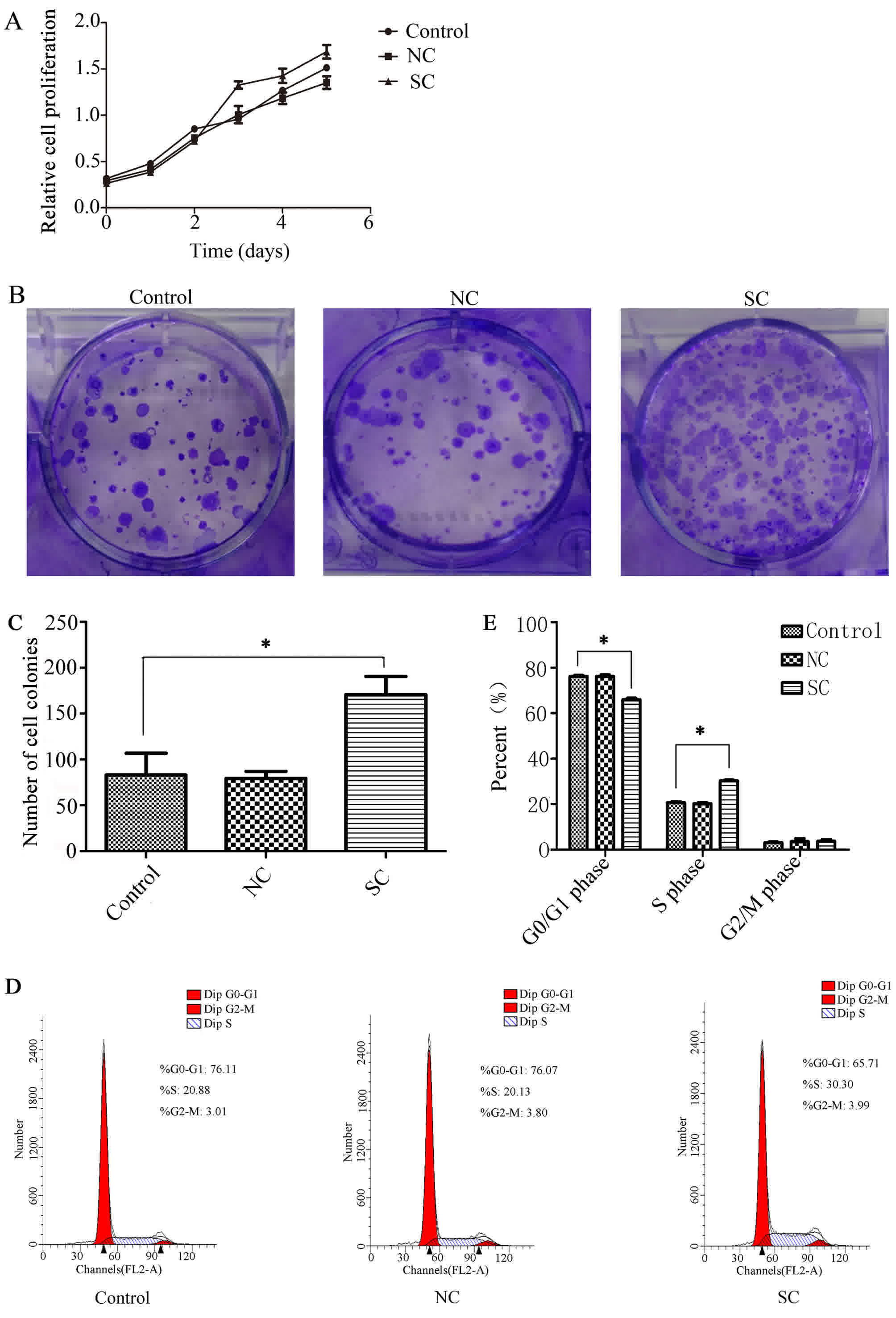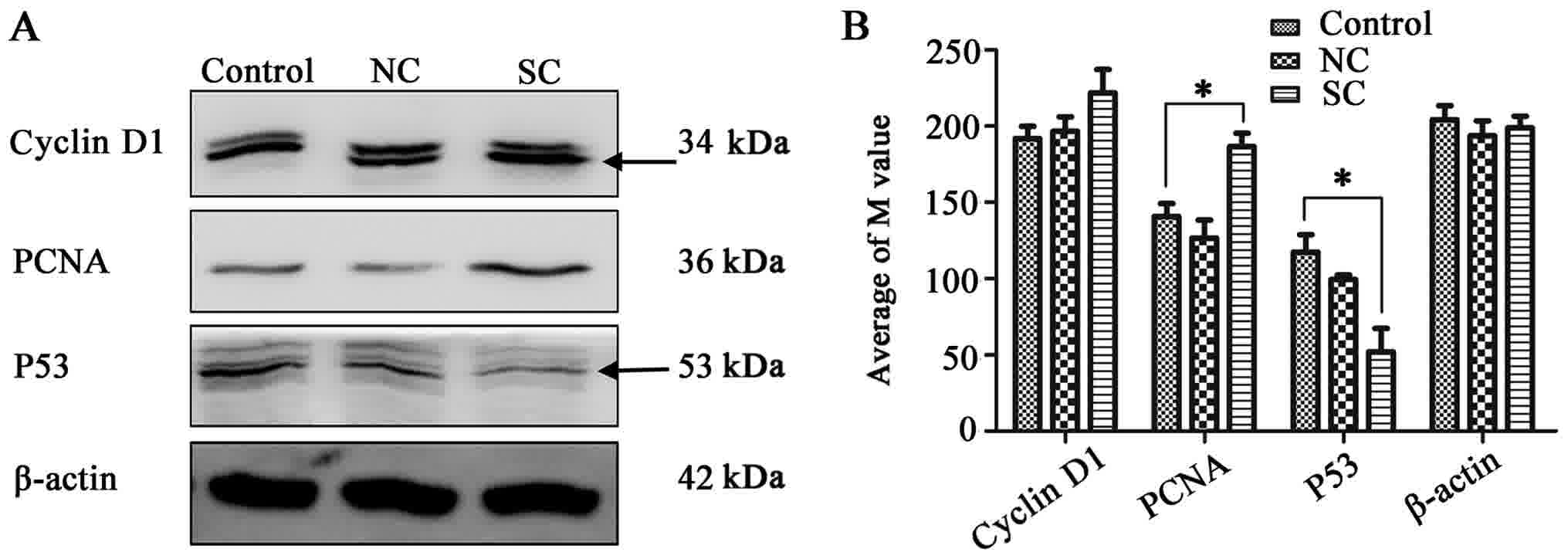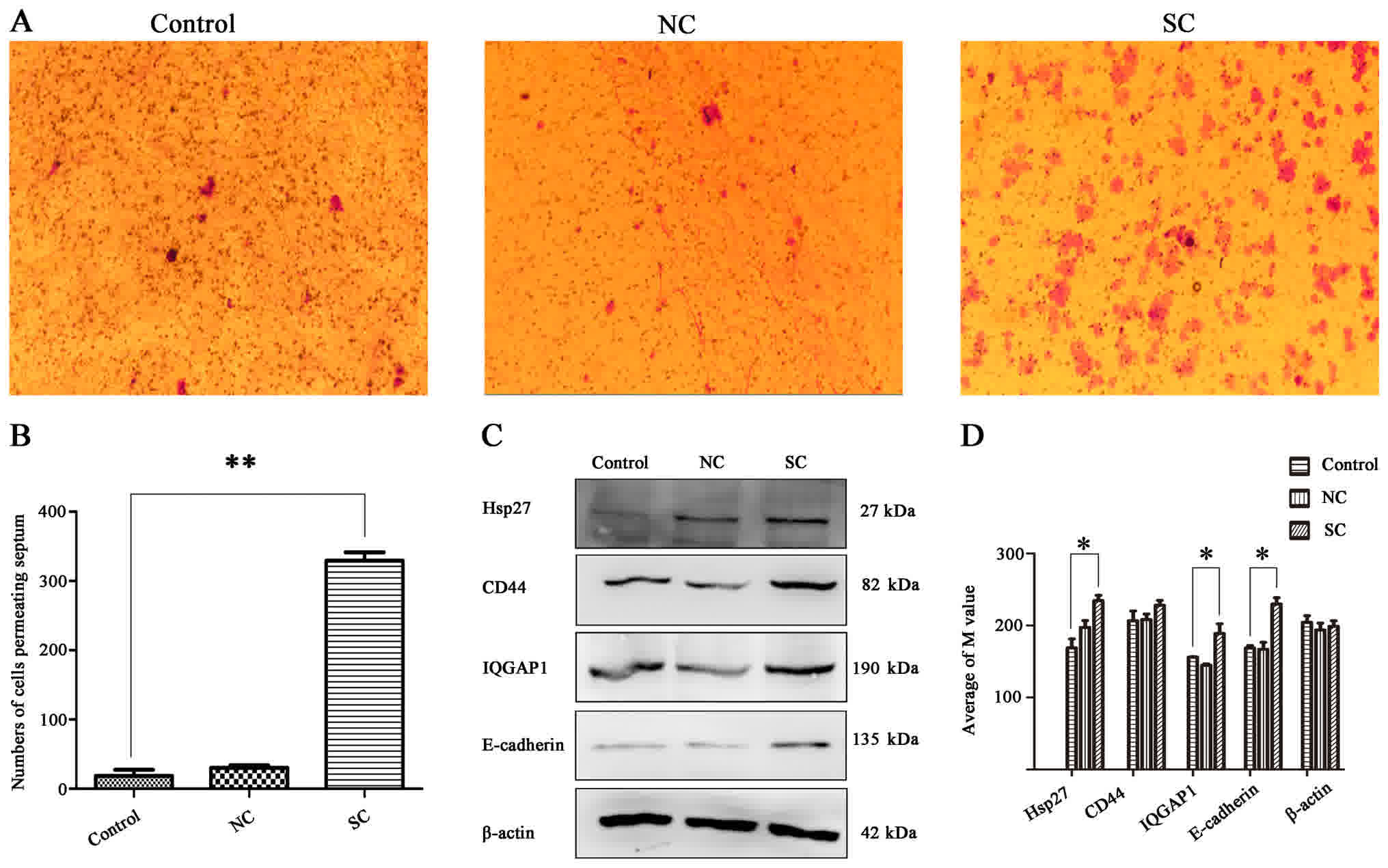|
1
|
Fujioka A, Takashima N and Shigeyoshi Y:
Circadian rhythm generation in a glioma cell line. Biochem Biophys
Res Commun. 346:169–174. 2006. View Article : Google Scholar : PubMed/NCBI
|
|
2
|
Feng D and Lazar M: Clocks, metabolism,
and the epigenome. Molecular Cell. 47:158–167. 2012. View Article : Google Scholar : PubMed/NCBI
|
|
3
|
Reppert SM and Weaver DR: Coordination of
circadian timing in mammals. Nature. 418:935–941. 2002. View Article : Google Scholar : PubMed/NCBI
|
|
4
|
Doi M, Ishida A, Miyake A, Sato M, Komatsu
R, Yamazaki F, Kimura I, Tsuchiya S, Kori H, Seo K, et al:
Circadian regulation of intracellular G-protein signalling mediates
intercellular synchrony and rhythmicity in the suprachiasmatic
nucleus. Nat Commun. 2:3272011. View Article : Google Scholar : PubMed/NCBI
|
|
5
|
Okamura H: Suprachiasmatic nucleus clock
time in the mammalian circadian system. Cold Spring Harb Symp Quant
Biol. 72:551–556. 2007. View Article : Google Scholar : PubMed/NCBI
|
|
6
|
Fu L, Pelicano H, Liu J, Huang P and Lee
C: The circadian gene Period2 plays an important role in tumor
suppression and DNA damage response in vivo. Cell. 111:41–50. 2002.
View Article : Google Scholar : PubMed/NCBI
|
|
7
|
Schibler U and Sassone-Corsi P: A web of
circadian pacemakers. Cell. 111:919–922. 2002. View Article : Google Scholar : PubMed/NCBI
|
|
8
|
Reppert SM and Weaver DR: Molecular
analysis of mammalian circadian rhythms. Annu Rev Physiol.
63:647–676. 2001. View Article : Google Scholar : PubMed/NCBI
|
|
9
|
Chen S, Choo K, Hou M, Yeh K, Kuo S and
Chang J: Deregulated expression of the PER1, PER2 and PER3 genes in
breast cancers. Carcinogenesis. 26:1241–1246. 2005. View Article : Google Scholar : PubMed/NCBI
|
|
10
|
Roenneberg T and Lucas R: Light, endocrine
systems, and cancer-a view from circadian biologists. Neuro
Endocrinol Lett. 23 Suppl 2:S82–S83. 2002.
|
|
11
|
Stevens R: Circadian disruption and breast
cancer: From melatonin to clock genes. Epidemiology. 16:254–258.
2005. View Article : Google Scholar : PubMed/NCBI
|
|
12
|
Moser M, Schaumberger K, Schernhammer E
and Stevens RG: Cancer and rhythm. Cancer Causes Control.
17:483–487. 2006. View Article : Google Scholar : PubMed/NCBI
|
|
13
|
Hansen J: Risk of breast cancer after
night- and shift work: Current evidence and ongoing studies in
Denmark. Cancer Causes Control. 17:531–537. 2006. View Article : Google Scholar : PubMed/NCBI
|
|
14
|
Zhou JX, Niehans GA, Shar A, Rubins JB,
Frizelle SP and Kratzke RA: Mechanisms of G1 checkpoint
loss in resected early stage non-small cell lung cancer. Lung
Cancer. 32:27–38. 2001. View Article : Google Scholar : PubMed/NCBI
|
|
15
|
Rose SL and Buller RE: The role of p53
mutation in BRCA1-associated ovarian cancer. Minerva Ginecol.
54:201–209. 2002.PubMed/NCBI
|
|
16
|
Motokura T, Bloom T, Kim HG, Jüppner H,
Ruderman JV, Kronenberg HM and Arnold A: A novel cyclin encoded by
a bcl1-linked candidate oncogene. Nature. 350:512–515. 1991.
View Article : Google Scholar : PubMed/NCBI
|
|
17
|
Sarparanta J, Jonson PH, Golzio C, Sandell
S, Luque H, Screen M, McDonald K, Stajich JM, Mahjneh I, Vihola A,
et al: Mutations affecting the cytoplasmic functions of the
co-chaperone DNAJB6 cause limb-girdle muscular dystrophy. Nat
Genet. 44(450–455): S451–452. 2012.
|
|
18
|
Hunter PJ, Swanson BJ, Haendel MA, Lyons
GE and Cross JC: Mrj encodes a DnaJ-related co-chaperone that is
essential for murine placental development. Development.
126:1247–1258. 1999.PubMed/NCBI
|
|
19
|
Hayashi H, Nabeshima K, Aoki M, Hamasaki
M, Enatsu S, Yamauchi Y, Yamashita Y and Iwasaki H: Overexpression
of IQGAP1 in advanced colorectal cancer correlates with poor
prognosis-critical role in tumor invasion. Int J Cancer.
126:2563–2574. 2010.PubMed/NCBI
|
|
20
|
Lin DC, Zhang Y, Pan QJ, Yang H, Shi ZZ,
Xie ZH, Wang BS, Hao JJ, Zhang TT, Xu X, et al: PLK1 Is
transcriptionally activated by NF-κB during cell detachment and
enhances anoikis resistance through inhibiting β-catenin
degradation in esophageal squamous cell carcinoma. Clin Cancer Res.
17:4285–4295. 2011. View Article : Google Scholar : PubMed/NCBI
|
|
21
|
Revenu C, Ubelmann F, Hurbain I, El-Marjou
F, Dingli F, Loew D, Delacour D, Gilet J, Brot-Laroche E, Rivero F,
et al: A new role for the architecture of microvillar actin bundles
in apical retention of membrane proteins. Mol Biol Cell.
23:324–336. 2012. View Article : Google Scholar : PubMed/NCBI
|
|
22
|
Song H, Li Y, Lee J, Schwartz AL and Bu G:
Low-density lipoprotein receptor-related protein 1 promotes cancer
cell migration and invasion by inducing the expression of matrix
metalloproteinases 2 and 9. Cancer Res. 69:879–886. 2009.
View Article : Google Scholar : PubMed/NCBI
|
|
23
|
Itoh Y and Seiki M: MT1-MMP: A potent
modifier of pericellular microenvironment. J Cell Physiol. 206:1–8.
2006. View Article : Google Scholar : PubMed/NCBI
|
|
24
|
Alemayehu M, Dragan M, Pape C, Siddiqui I,
Sacks DB, Di Guglielmo GM, Babwah AV and Bhattacharya M:
β-Arrestin2 regulates lysophosphatidic acid-induced human breast
tumor cell migration and invasion via Rap1 and IQGAP1. PLoS One.
8:e561742013. View Article : Google Scholar : PubMed/NCBI
|
|
25
|
Xiaoping L, Xiaowei Z, Leizhen Z and
Weijian G: Expression and significance of CD44 and p-AKT in
pancreatic head cancer. World J Surg Oncol. 13:3342015. View Article : Google Scholar : PubMed/NCBI
|
|
26
|
McFarlane S, McFarlane C, Montgomery N,
Hill A and Waugh DJ: CD44-mediated activation of α5β1-integrin,
cortactin and paxillin signaling underpins adhesion of basal-like
breast cancer cells to endothelium and fibronectin-enriched
matrices. Oncotarget. 6:36762–36773. 2015. View Article : Google Scholar : PubMed/NCBI
|
|
27
|
Kaigorodova EV, Zavyalova MV, Bychkov VA,
Perelmuter VM and Choynzonov EL: Functional state of the Hsp27
chaperone as a molecular marker of an unfavorable course of larynx
cancer. Cancer Biomark. 17:145–153. 2016. View Article : Google Scholar : PubMed/NCBI
|


















